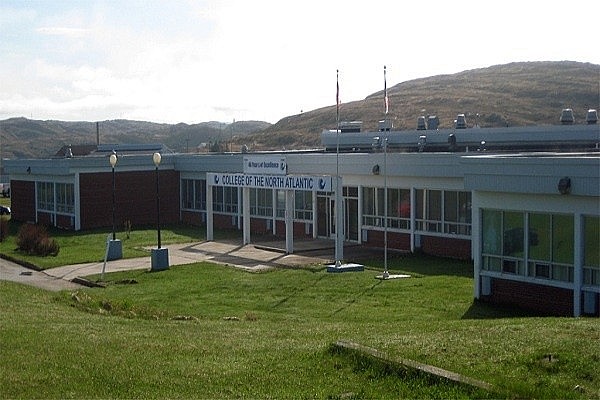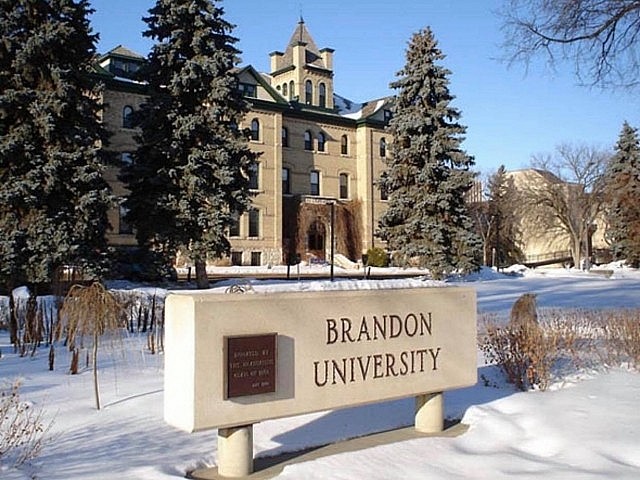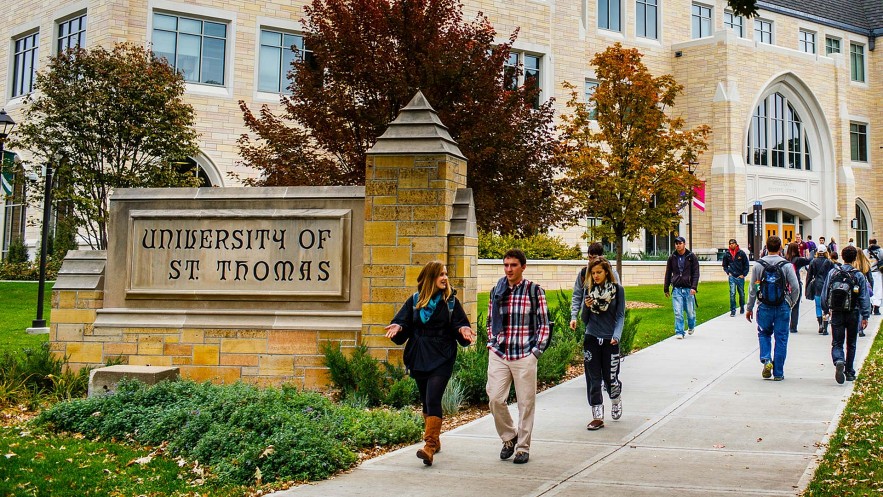Top 11 Tuition Free Universities in Canada for Permanent Residents and Citizens
Is higher education in Canada Free for Citizens and Permanent Residents?
For the majority of students, higher education in Canada is not free. Government financial aid, such as loans and grants, may be available to Canadian citizens and permanent residents to help pay for tuition and living costs.
The main distinction between studying in Canada as an international student and as a permanent resident is that the latter pays the same low tuition rates as Canadian citizens. When it comes to receiving an education within Canada, the government and educational institutions view you as already being a Canadian. Most of your expenses will be covered by the government.
On the other hand, tuition costs for international students are typically higher than those for Canadian residents or citizens. Tuition rates differ depending on the province, the college, and the particular course of study.
To help students with the cost of tuition and other expenses, some Canadian universities and colleges offer scholarships, bursaries, and other forms of financial aid.
When thinking about attending a Canadian university or college, it's crucial to research and consider all financial aid and scholarship options.
Check more: 11 Best Scholarships In Canada For International Students
Top 10+ Tuition Free Colleges In Canada 2024
1. University of British Columbia (UBC)
 |
| University of British Columbia |
Website: www.ubc.ca
The University of British Columbia is one of the top 20 public universities in the world and a major hub for research, teaching, and learning.
UBC welcomes innovation and puts concepts into practice. UBC has been providing opportunities for those with the curiosity, drive, and vision to create a better world since 1915.
You don't have to be a Canadian citizen to qualify for in-country tuition rates. There are a few exceptions to the rule where UBC bases your fee schedule on your citizenship.
UBC considers you to be a Canadian student if you meet one of the following criteria:
• You are a Canadian citizen;
• You hold multiple citizenships and one of them is Canadian;
• You are a permanent resident of Canada;
• You have refugee status in Canada; or
• You are the dependent of a diplomat assigned to Canada (your fees and status will change to international once they leave their post in Canada).
2. College Of The North Atlantic
 |
| College Of The North Atlantic |
Website: www.cna.nl.ca
In Newfoundland and Labrador, there is a public university called the College of the North Atlantic. Business, engineering, health sciences, and technology are just a few of the programs that the college offers.
Even though the college levies some fees, such as for textbooks and supplies, Canadian citizens and permanent residents are not required to pay tuition. The college also places a lot of emphasis on experiential learning, giving students the chance to get real-world experience in their chosen field of study.
3. Berea College
 |
| Berea College |
Website: www.berea.edu
Private liberal arts college Berea College is situated in Berea, Kentucky. This college stands out because it guarantees all students a free education.
Students also receive a laptop to use while studying and working on campus to help pay for room and board. The student body at the college is diverse, and it offers a variety of extracurricular activities for students to choose from.
 Top 15+ Tuition-Free Universities in Canada for International Students Top 15+ Tuition-Free Universities in Canada for International Students Welcome to the world of higher education in Canada, where opportunities for high-quality education free of tuition fees abound. KnowInsiders.com provides detailed answers to your ... |
4. Quest University Canada
Website: https://questu.ca/
Private liberal arts and sciences university Quest University Canada is situated in Squamish, British Columbia.
The university provides a distinctive interdisciplinary curriculum that enables students to investigate a variety of topics. The university also provides a variety of scholarships and financial aid opportunities to help cover the cost of room and board. Tuition is free for Canadian citizens and permanent residents.
Being a registered charity, Quest University does not receive any type of government funding. To run and deliver their educational program, Quest depends on student fees and philanthropic donations.
Every student has the chance to apply for scholarships and financial aid. Additionally, Quest students are qualified for a number of government loan programs.
Please be aware that Quest does not offer resources to pay for lodging, meals, transportation, or other expenses. These expenses are likely to total at least $15,000 CDN per year for students.
5. Maritime College Of Forest Technology
Website: www.mcft.ca
In Fredericton, New Brunswick, there is a public university called the Maritime College of Forest Technology.
The college provides courses in forestry and natural resource management, and Canadian citizens and permanent residents are exempt from paying tuition. Students at the college have the chance to gain practical experience in forest management and conservation because the college places a strong emphasis on experiential learning.
In April 1946, the provincial governments of New Brunswick and Nova Scotia and their wood-using industries founded the Maritime College of Forest Technology (MCFT), formerly the Maritime Forest Ranger School (MFRS) in Fredericton, New Brunswick. MFRS was originally located on the University of New Brunswick's Alexander College grounds, now the Fredericton Exhibition Grounds. MFRS relocated to face the Saint John River Valley in 1949. The MFRS was alone here until 1986, when the new campus was built. This Hugh John Flemming Forestry Centre campus is shared with the Canadian Forest Service and Department of Natural Resources. The college added a francophone Bathurst campus in 1980. Even today, MCFT Bathurst faculty train forest technicians in French.
An annual program, the MFRS ran from 1946 to 2003. Mature, working students dominated enrollment at that time. For a long time, students had to have forestry experience to be admitted. The college switched from MFRS to MCFT in 2003 and adopted the two-year curriculum. To attract Maritime students, prior work experience was downplayed. MCFT began offering an Advanced Diploma Program in Forest Technology and Fish & Wildlife Technology in 2008 for students interested in forestry or wildlife careers.
Since 1946, MCFT has graduated over 3,300 students, producing high-quality natural resource workers. They work in municipal, provincial, and federal government departments, NGO's and non-profits, businesses, wildfire suppression, and other exciting positions.
6. Brandon University
 |
| Brandon University |
Website: www.brandonu.ca
Public university Brandon University in Brandon, Manitoba, provides tuition-free instruction to Canadian citizens and permanent residents.
The university offers numerous undergraduate and graduate programs in a variety of fields, including the arts, sciences, education, and others.
The total cost of attending BU is influenced by a number of issues such as where you live, what program you are enrolled in and how many courses you take.
Canadian students with financial need may apply for provincial and Canada Student Loans as well as other government financial aid.
7. Trent University
Website: www.trentu.ca
Trent University, located in Peterborough, Ontario, is renowned for placing a high priority on social responsibility and environmental sustainability.
This reputable institution offers tuition-free education to Canadian citizens and permanent residents.
Tuition levels are determined by the year a student first registered at Trent University.
Residence fees, meal plans, books and special course related fees are in addition to the registration fees. Instructors will advise students during class of additional course fees for field trips or supplementary material, etc.
8. Saint Paul University
Website:
The Catholic-affiliated Saint Paul University, which is located in Ottawa, Ontario, provides courses in social sciences, philosophy, theology, and other subjects.
For Canadian citizens and legal residents, there is no tuition fee, and the university actively fosters a vibrant multiracial environment.
9. Université De Saint-Boniface
Website: https://ustpaul.ca/
Université de Saint-Boniface provides a variety of programs in the arts, education, science, and health sciences as the only institution of higher learning in French in Manitoba. Studying is free for Canadian citizens and permanent residents.
10. St. Thomas University
 |
| St. Thomas University |
Website: www.stu.ca
St. Thomas University, which has its headquarters in Fredericton, New Brunswick, offers free tuition to Canadian citizens and legal permanent residents.
The university provides a variety of programs in the humanities, social sciences, and other fields.
In order to leave the university, a student must go through the Registrar's office. An official withdrawal from the University does not occur if fees are not paid or if students stop attending classes.
Tuition refunds will be prorated up to the final day to drop courses without facing academic consequences. On the St. Thomas University website, under Current Students, Dates and Deadline, are these dates. After the final date to withdraw without academic penalty, students are charged the full amount.
Government student loan borrowers should be aware that going part-time or leaving school will have a negative effect on their ability to repay their loans. For more information, students are advised to contact Financial Services.
Except for health and dental fees, which will be prorated up to the date of withdrawal, mandatory fees are not refundable.
The following percentage of their rent will be charged to students who wish to leave their residence before the end of their lease.
11. Memorial University Of Newfoundland
Website: www.mun.ca
Memorial University of Newfoundland is a reputable public university that provides tuition-free education to Canadian citizens and permanent residents.
It is situated in St. John's, Newfoundland and Labrador. The university offers a huge selection of programs in many different subject areas.
Conclusion
Attending a free college in Canada can offer several benefits.
Firstly, it can help to reduce the financial burden of pursuing higher education. Many students graduate with significant student loan debt, and attending a free college can help to mitigate this issue.
In addition, attending a free college can provide students with the opportunity to focus on their studies without the added stress of worrying about how they will pay for tuition.
The attending a free college can provide students with a unique learning experience. Free colleges often have smaller class sizes, allowing for more personalized attention from professors.
In addition, many free colleges have a strong focus on experiential learning, providing students with the opportunity to gain practical experience in their field of study.
 Top 10+ Most Popular Websites To Search And Apply For Jobs In Canada Top 10+ Most Popular Websites To Search And Apply For Jobs In Canada One of the best ways to search for jobs in Canada for both locals and foreigners is via job websites. We are glad to show ... |
 Top 10 Biggest Financial Companies In Canada By Market Cap Top 10 Biggest Financial Companies In Canada By Market Cap Financial service firms play an important role in the Canadian economy. Let’s explore the biggest companies in Canada that provide financial services. |
 Top 10 Biggest Cities By Population In Canada Top 10 Biggest Cities By Population In Canada Are you curious to know which city is the biggest in Canada by population? Improve your knowledge by finding the answer in the article below! |























